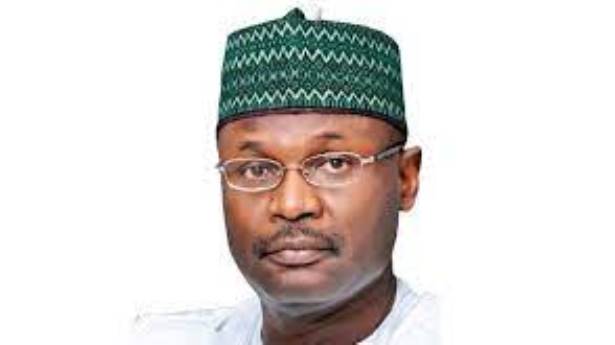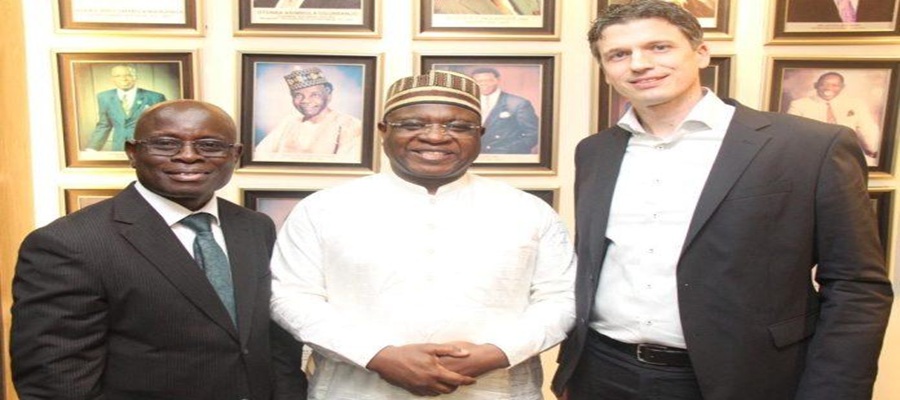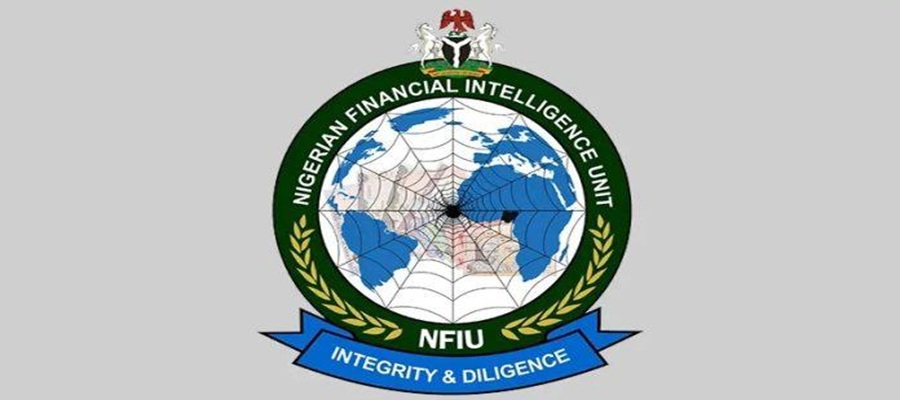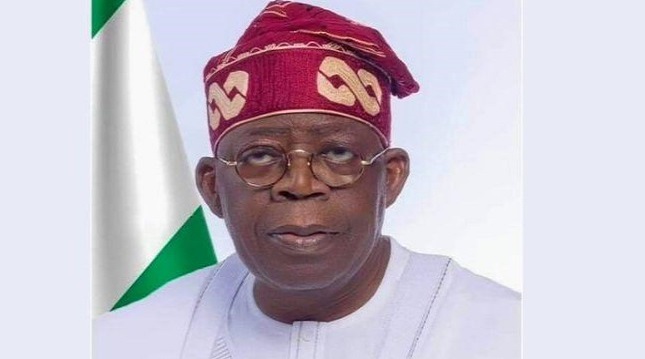News
How INEC Innovations to Strengthen Electoral Process is Anchored on Technology

Over the years Nigeria’s electoral system has been faced with credibility issues rising from wide spread rigging and falsification of results, multiple registration of voters, intimidation of voters among other electoral offenses. These vices have persisted in spite of efforts by past chairmen of the umpire body Independent National Electoral Commission (INEC) to change the narrative.

However, things are beginning to change for the better for the country’s electoral system evident in the just concluded Anambra state governorship election held on November 6, 2021. There were innovations introduced by Inec during that election that help to improve the process and reassured confidence of the people in the process.
These innovations according to Prof. Mahmood Yakubu, chairman, Independent National Electoral Commission (INEC), at an interactive meeting with online publishers in Lagos are driven by technology.
He said: “Determined to deepen the use of technology and reduce human intervention in the critical stages of the electoral process, the Commission introduced new innovations.
“A few of them are identified as follows: Submission and Processing of Nominations Forms and Other Applications. The Commission has been discouraging human intervention in the electoral process. Since the 2019 General Election, the following activities are now conducted either partially or entirely online through dedicated portals: Voter pre-registration; Nomination of candidates for election by political parties; Submission of list of polling and collation agents by political parties; Accreditation of national and international observers for election; and Accreditation of media organisations for elections. Continuous Voter Registration (CVR) and Launch of Online
Registration Portal
“You will recall that the Commission often undertakes a fresh registration of eligible voters with every general election until 2010 when the first reliable biometric register of voters was compiled. Thereafter, the practice is to undertake intermittent registration of voters on the eve of major elections.
“However, in April 2017, this Commission for the first time began the implementation of the registration of voters on a continuous basis as provided in the Electoral Act.
“By the time the CVR was suspended in August 2018 to prepare for the 2019 General Election, a total of 14,283,734 new voters had been registered and added to the national register of voters, increasing the overall number to 84, 004 084.
“However, the CVR could not resume as planned after the general election due in part to the outbreak of the COVID-19 pandemic in the earlier part of 2020.
“In our determination to serve Nigerians better and in response to repeated calls by stakeholders, the Commission introduced a dedicated portal for online registration on 28th June 2021.
“This allows intending registrants to commence the process online by filling the forms, upload their pictures and required documents, and then make an appointment on the web portal for a date and time to visit an INEC State or Local Government Area (LGA) office to give their fingerprints and complete the registration. In addition, those who are already registered as voters can carry out all the other activities such as transfers, correction of personal details and replacement of damaged or defaced
Permanent Voters’ Cards (PVCs) Online
“Nigerians have fully embraced and are taking full advantage of the services available on the portal. The Commission has also been updating Nigerians every week on new development since the CVR started. As of 22nd November 2021, the CVR platform had recorded a total of 4,297,494 fresh registrants while 1,856,771 registrants have validated their application.
“The INEC Voter Enrolment Device (IVED) In June this year, INEC introduced a special gadget designed in-house by the Commission’s Engineers but fabricated abroad. It performs a variety of functions including physical registration of voters, fingerprint and facial authentication on election day and uploading of the polling unit result sheets to the INEC Result Viewing (IReV) portal.
“While the device was used as the INEC Voter Enrollment Device (IVED) at the resumption of the Continuous Voter Registration in June this year, it first was deployed for the Bimodal Voter Accreditation System (BVAS) in the Isoko South 1 State Constituency bye-election in Delta State on 11th September 2021 and later for the recently concluded Anambra Governorship election. In both elections, the equipment performed the functions of the Smart Card Readers (SCR) and the Z-Pad.
INEC Result Viewing Portal
“In our effort to engender transparency in the electoral process, the Commission unveiled the INEC Result Viewing (IReV) portal to make available for public view copies of the polling unit election result sheet, known as Form EC8A on Election Day. By Clicking on http://inecelectionresults.com and creating an account and password, any interested Nigerian can have access to the portal and view polling unit results are they are uploaded live.
“The Nasarawa Central Constituency bye election held on 8th August was the first to have its polling units’ results uploaded to the portal, followed by the Edo and Ondo Governorship elections.
“However, before the introduction of IReV, the Commission had, during the 2017 Anambra State Governorship election, introduced the pasting of Form EC 60E, also known as the “People’s Result Sheet” at Polling Units, where citizens could view the result of each polling unit.
Inclusivity
“The Commission recognizes that some members of the society need special attention to make it possible for them to participate actively in the electoral process.
“The Commission meets regularly with Civil Society Organisations (CSOs) representing Persons Living with Disability with a view to understanding their needs and bringing them up to speed on policies and actions that may affect them. In response to demands, the Commission now deploys assistive facilities such as the Braille Ballot
“Guide and magnifying glasses during elections to enable vision-impaired voters, persons living with Albinism and other individuals who may so require, to take advantage of the resources to vote unaided.
“Indeed, the Commission also cares about internally displaced Nigerians who were forced to flee their homes due to natural disasters, insurgency, activities of bandits and other criminals.
“In September 2018, the Commission developed the INEC Framework on Access and Participation of Persons with Disabilities, followed by the Regulations and Framework for Voting by Internally Displaced (IPDs) in December 2018.
“We also have the Gender Policy to take care of the needs of women in the electoral process and also recently created a Department of Gender and Inclusivity for the implementation of the gender policy in a coordinated manner.
Anambra Governorship Election 2021
“The Anambra Governorship election was held on 6th November 2021 under difficult circumstances. The Commission has declared a winner and the certificate of return has been issued. The election was peaceful and the outcome of the election has been universally adjudged to be credible.
“However, the Commission is not unaware of the issues raised about the performance of the new technology deployed for voter accreditation. The deployment of the
“BVAS in the Anambra Governorship election was the second pilot test. It was intended to achieve two objectives. First is voter accreditation to replace the Smart Card Reader. The second is the uploading of polling unit result on the IReV portal to replace the z-pad. The BVAS performed optimally in uploading results on the IReV but there were the usual challenges associated with the pilot of a new technology in a major election.
“From our assessment so far, much of the glitches encountered on Election Day in Anambra State had little to do with the machines but more with the operators of the system.
“The extraordinarily difficult circumstances under which the election was held meant that some of the better trained ad hoc staff withdrew at the 11th hour. Similarly, some critical service providers such vehicle owners also withdrew thereby severely affecting our plans for rapid response by our technicians – the Registration Area Technical (RATECH) staff.”
Technical issues relating to the performance of the BVAS will be addressed in the presentation by our Director ICT at this important meeting. Suffice it to say that in spite of the glitches, BVAS has justified our determination to deepen the deployment of technology in the electoral process.
Given the credible conclusion of the election, it has strengthened our belief that even the minimal introduction of technology in voter accreditation is better than the best manual process. We want to thank the voters in Anambra State for their patience and faith in the new technology. This has also justified the hope of citizens across the country that the deployment of more appropriate technology is essential to electoral integrity in Nigeria.
Our response to the glitches encountered started right from Anambra State. This explains there were no challenges reported during the supplementary election in Ihiala Local Government Area held on Tuesday 9th November 2022.
I want to reassure Nigerians that we have learnt vital lessons from the Anambra pilot. There will be remarkable improvement in the next major election which is the end-of-tenure Area Council election in the Federal Capital Territory (FCT) schedule to hold in three months on 12th February 2022.
News
NGX Unveils Net-Zero Plan for Greener Capital Market

Nigerian Exchange Limited (NGX) has launched the NGX Net-Zero Programme to guide listed companies toward clear carbon reduction pathways and enhanced climate disclosures aligned with global investor standards.

NGX
The high-level launch engaged chief executives of quoted firms alongside development partners including German Investment Corporation KfW, DEG, and African Foresight Group (AFG), NGX’s implementation partner. Issuers and investors discussed financing decarbonisation, sustainability practices, and attracting climate-aligned capital.
NGX Group Chairman Dr Umaru Kwairanga described the initiative as concrete climate action, commending partners for two years of groundwork. “Today marks leadership and decisive action. Climate change has become a core business imperative, with capital markets mobilising capital and setting standards,” Kwairanga said.
He positioned NGX Net-Zero to support emissions measurement, disclosure, capacity building, and sustainable finance access, urging CEOs to embrace it strategically rather than as compliance. Kwairanga reaffirmed NGX’s goal to make Nigeria’s capital market Africa’s green finance hub.
Group CEO Temi Popoola called climate action a business imperative, noting sustainability-embedded firms attract capital, manage risks, and stay competitive. DEG Management Board Member Monika Beck highlighted partnerships scaling impactful, commercially viable climate solutions.
The event closed with a ceremonial gong marking the programme launch and send-off for outgoing DEG Regional Director Bernd Telemann.
News
Nigeria Off EU High-Risk Money Laundering List in Major Financial Win

Nigerian Financial Intelligence Unit (NFIU) has hailed Nigeria’s removal from the European Union’s list of high-risk third countries for Anti-Money Laundering and Countering the Financing of Terrorism (AML/CFT) as a landmark achievement endorsing the nation’s reform efforts.

Nigerian Financial Intelligence Unit (NFIU)
NFIU CEO Hafsat Abubakar Bakari said the delisting, contained in European Commission Delegated Regulation (EU) C (2025) 8460 adopted December 4, 2025 and effective January 29, 2026, affirms sustained AML/CFT and Counter Proliferation Financing (CPF) reforms.
The move follows Nigeria’s exit from the FATF Jurisdictions under Increased Monitoring after addressing strategic deficiencies, alongside Burkina Faso, Mali, Mozambique, South Africa and Tanzania.
Bakari noted the European Commission recognised Nigeria’s strengthened AML/CFT effectiveness, closed technical gaps, and fulfilled FATF Action Plan commitments leading to grey list removal in June and October 2025.
The delisting eliminates enhanced due diligence requirements for EU financial transactions, easing compliance, boosting cross-border flows, and enhancing Nigeria’s appeal for European trade, investment and partnerships.
The NFIU attributed success to President Bola Ahmed Tinubu’s political will and collaboration among National Assembly, law enforcement, regulators, judiciary, private sector and development partners.
The agency reaffirmed commitment to ongoing FATF, GIABA, EU engagement and domestic framework resilience to maintain international confidence in Nigeria’s financial system.
News
FG Directs Banks, Fintechs to Remit VAT on Service Fees

The Federal Government has directed all banks and fintechs to collect and remit 7.5 per cent value-added tax on certain electronic banking services, effective Monday, January 19, 2026, according to an email notice issued by payment platforms.

The VAT will apply to electronic banking charges, including mobile money transfers, USSD transaction fees, and card issuance fees, according to an email notice on Wednesday shared with customers by Moniepoint.
For example, if a bank charges N100 to make a transfer, the 7.5 per cent VAT will be applied to that service fee, not the money being sent.
“From Monday, January 19, 2026, we are required to collect a 7.5 per cent VAT, to be remitted to the Nigerian Revenue Service (formerly known as the Federal Inland Revenue Service).
“VAT will apply to certain banking services that include electronic banking charges such as mobile banking fees (transfers), USSD transaction fees, and card issuance fees,” the email read.
Other operators are expected to issue similar notices to their customers in the coming days. Services that will remain exempt include interest earned on deposits and savings, meaning customers will not pay tax on the returns from their accounts.
The NRS, formerly known as the Federal Inland Revenue Service, has set the deadline to ensure that all commercial banks, microfinance banks, and electronic money operators comply with the collection and remittance requirement.
Moniepoint stressed that this is not a price increase but a statutory obligation. “Moniepoint is required to collect and remit VAT to the Nigerian Revenue Service,” the company said in a statement.
The move is part of the government’s broader efforts to standardise VAT collection on digital financial services and expand revenue generation amid Nigeria’s growing digital economy. VAT on banking transactions is not entirely new; the NRS is now enforcing uniform collection rules across all platforms, ensuring compliance across the sector.
Customers have been assured that the new tax will be clearly itemised, with the VAT shown separately on transaction statements and reports.
In December, several commercial banks informed customers that the N50 stamp duty would be deducted on electronic transfers of N10,000 and above, following the commencement of provisions of the new Tax Act.
The charge, previously known as the EMTL, has now been formally reclassified as stamp duty and will be applied as a one-off fee on qualifying electronic transfers.

 E-Financial2 days ago
E-Financial2 days agoAngst as FG Demands 7.5 Percent VAT on Mobile Bank Transfers, USSD

 News2 days ago
News2 days agoMoniepoint Launches Second Cohort of DreamDevs Initiative to Double Down on Africa’s Tech Talent Pipeline

 E-Financial2 days ago
E-Financial2 days agoNGX lists 3.156bn UBA shares, boosting capital to N513Bn

 E-Financial2 days ago
E-Financial2 days agoThe Missing Pieces in Nigeria’s Banking Recapitalisation

 Telecom2 days ago
Telecom2 days agoGlo Unveils Immersive Gaming Experience, Travel Saga

 E-Business2 days ago
E-Business2 days agoHalf of Global Companies Build SOCs to Enhance Cybersecurity, with a Focus on Human Expertise

 General News2 days ago
General News2 days agoNITDA DG Reaffirms Nigeria–U.S. Partnership on Data Privacy, AI and Cybersecurity

 General News2 days ago
General News2 days agoParadigm Initiative Condemns the Internet Shutdown and Media Restrictions in Uganda Ahead of the 2026 General Election

























